No, this isn’t a blog about money. It’s about rest.
The quote is from Virginia Woolf who wrote in her diary on February 16, 1930: “I would like to lie down and sleep, but feel ashamed. Leonard brushed off his influenza in one day and went about his business feeling ill. But as I was saying, my mind works in idleness. To do nothing is often my most profitable way.” (Love Letters: Virginia Woolf and Vita Sackville-West, Vintage Classics, 2021)
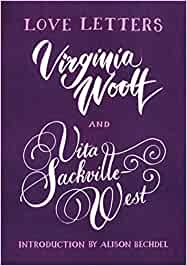 We haven’t learned much since then about rest (Virginia died in 1941) and sometimes it’s illness that has us realize the benefits of rest. And when you take the time to be idle, without being ill, there are indeed many gifts. People often feel guilty when they stop and so push through pain and fatigue as Leonard Woolf did, brushing off his influenza in one day.
We haven’t learned much since then about rest (Virginia died in 1941) and sometimes it’s illness that has us realize the benefits of rest. And when you take the time to be idle, without being ill, there are indeed many gifts. People often feel guilty when they stop and so push through pain and fatigue as Leonard Woolf did, brushing off his influenza in one day.
Recently I went to see a new physiotherapist (new to me) as my back had clenched up. This was nothing new but I did want to have some advice and support for moving forward and continuing to spend time at the computer writing as well as facilitating Zoom writing circles.
John gave me some exercises for my shoulder and hip and some strengthening exercises for my back. As I’ve worked at a typewriter and computer for about 55 years, my back is definitely in need of support. Ultrasound treatment was helpful and the best advice I received was to lie down four to five times a day for fifteen minutes at a time with my neck supported on a rolled-up towel.
This new practice is my form of meditation. I don’t attempt to read or do anything during these fifteen-minute stretches on my bed. I only do it twice a day now although more often would, I’m sure, be very helpful.
Asha Frost who is a member of the Chippewas of Nawash First Nation in Ontario has had a struggle, in the past, with allowing herself to rest even when diagnosed with Lupus. In her book You Are the Medicine, Asha includes a story of “Why Bear Began to Hibernate.” Bear has a message for us:
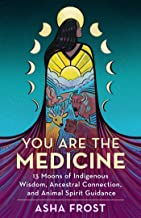 You are worthy of rest.
You are worthy of rest.
Listen to the messages from your body.
Magic is birthed from the void.
The Great Mystery moves through us, even when it appears that nothing is happening.
Taking a walk around the property where we now live, Sarah and I see many signs of Nature preparing to rest. The little Garry Oak planted this year has brown leaves already knowing in its young state, the need to rest for the winter. The poppies now have bare heads and the alum have shapes like satellites. The leaves of the cottonwood tree are drifting to the ground to crunch underfoot. The Virginia Creeper is a vibrant red, a final performance before resting.
I’ve read essays by modern day essayist Rebecca Solnit who sometimes posts on Facebook. She recently had something to share about rest saying “ creative work too benefits from rest and respite. As a writer I benefit greatly from leaving the work alone and coming back to it fresh, as one does with a relationship; pause, stoppage, inaction, inattention can all be wildly generative, and if they’re not that might be its own kind of fruitful that cannot be measured.”
She continues by saying: “Take refuge in that beautiful stillness in which everything is happening in all the ways that nothing is happening in busyness. Everything happening in the depths, like deep water under a reflective surface, a lake reflecting clouds with schools of fish in the depths. Seeds germinating underground. Sitting still as zazen or just daydreaming or watching clouds is an act of revolt against the shouts that we should be doing something/do more/do more faster that are all around us. If you find that nothing is hard to do, it’s exactly because it’s this kind of revolt against the production/consumption juggernaut that is a kind of war against rest, depth, and the earth. Inaction might be another face of peace in our times with stillness the ceasefire in which spring comes again.”
It’s true that the work and the creator of it benefit from rest and stillness with “everything happening in the depths.”
Poet Jane Hirshfield in an interview with Christian McEwen for her book Sparks from the Anvil: The Smith College Poetry Interviews, says she praises silence rather frequently.
“I praise what happens within silence and the unsaid. And I praise not knowing, abiding in question rather than leaping to what may be a too-easy answer. I also often speak about transition in poetry. In fiction or playwriting, that is absolutely common. But in poetry workshops, it’s relatively rare. I asked my friends about this when I began teaching it, and no one had ever said a word to them about transitions in poetry. For a transition to happen, you need a gap, a little sabbath. I sometimes feel that all wisdom, all newness of insight and experience, lives in the hinges – of poems, of a life.”
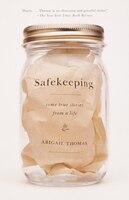 So along with the respite we need and the rest the work needs, Jane is referring to transitions made in “a gap, a little sabbath.” Poetry has those “hinges” visible on the page in spaces between stanzas, sometimes between words. Jane is referring to the hinges of a life as well and it’s in those still places that we connect to our own story, our own wisdom and insight.
So along with the respite we need and the rest the work needs, Jane is referring to transitions made in “a gap, a little sabbath.” Poetry has those “hinges” visible on the page in spaces between stanzas, sometimes between words. Jane is referring to the hinges of a life as well and it’s in those still places that we connect to our own story, our own wisdom and insight.
And prose writers too have used space for readers to take a pause, a rest during to reflect on what we’ve read and perhaps to recall our own story. For example, memoirs by Abigail Thomas are made up of vignettes which sometimes take up only half a page. I’m thinking of one example: Safekeeping: Some True Stories From a Life (Anchor Books, 2000) in which Abigail has written about pivotal moments in her life including the death of her second husband. As the book’s description says: “This is a book in which silence speaks as eloquently as what is revealed.” Sometimes the passages of prose are as brief as one paragraph on a page. And this is a writer who is fond of napping with her three dogs.
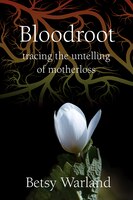 Betsy Warland’s Bloodroot: Tracing the Untelling of Motherloss (Inanna Publications, 2021) broke new ground when it was first published in 2000 by Second Story Press. There is a lot of white space and as Susan Olding notes in her foreword recalling her first reading of the book in 2008: “The space had presence and weight. The space made room for what cannot be said.”
Betsy Warland’s Bloodroot: Tracing the Untelling of Motherloss (Inanna Publications, 2021) broke new ground when it was first published in 2000 by Second Story Press. There is a lot of white space and as Susan Olding notes in her foreword recalling her first reading of the book in 2008: “The space had presence and weight. The space made room for what cannot be said.”
In Chantal Gibson‘s endorsement of Bloodroot, she says: “Read the text. Read the white space. Read the silences in between.”
In the passage by Rebecca Solnit quoted above, she begins: “If you’re sick or injured and healing or growing a new life inside you or just worn out, please notice that that thing known as ‘doing nothing’ is when you’re doing the utterly crucial and precious work of growing and healing and restoring. This also goes for everyone who’s just worn down, exhausted, dispirited, and who’s not that right now? I’m not the Nap Ministry but I’m for the power of rest and the holiness of respite and the you that is your cells and circulatory system and all those inner workings that are so mysterious and necessary and regenerative if we let them be.”
I first heard of the Nap Ministry which “seeks to dismantle white supremacy and capitalism by embracing rest as a form of resistance” in Hannah McGregor’s book: A Sentimental Education (Wilfrid Laurier University Press, 2022). The Nap Ministry is a project created by Tricia Hersey, “at the intersection of Black feminist thought and disability justice,” who is known as The Nap Bishop, Hannah says in her chapter entitled “Caring Ferociously.”
The late poet Audre Lorde linked self-care to warfare in her 1988 essay collection A Burst of Light. She was living with cancer at the time. “Overextending myself is not stretching myself. I had to accept how difficult it is to monitor the difference. Necessary for me as cutting down on sugar. Crucial. Physically. Caring for myself is not self-indulgent, it is self-preservation and that is an act of political warfare.” (As quoted in A Sentimental Education.)
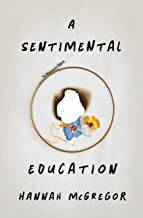 As Hannah McGregor says, Lorde was writing “specifically about self-preservation as a Black lesbian feminist, the refusal to be either forced to live or allowed to die.”
As Hannah McGregor says, Lorde was writing “specifically about self-preservation as a Black lesbian feminist, the refusal to be either forced to live or allowed to die.”
As I thought about rest, many resources came my way hence all the quotes above. And I thought back to the Fall of 2015 when I had an extended rest with cancer treatment and surgery. Having radiation treatments on my shin didn’t prevent me from walking all over Victoria for the five weeks I was there. My form of rest was not needing to accomplish anything while allowing my body to heal.
While some may feel guilty resting, others of us love what we do and so press on regardless. We tend to take our bodies for granted until they complain and we have to take breaks even from the work we love.
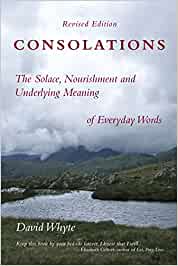 Poet and philosopher David Whyte says: in his book Consolations: “We are rested when we let things alone and let ourselves alone, to do what we do best, breathe as the body intended us to breathe, to walk as we were meant to walk, to live with the rhythm of a house and a home, giving and taking through cooking and cleaning. When we give and take in an easy foundational way we are closest to the authentic self, and closest to that self when we are most rested.” (Consolations: The Solace, Nourishment and Underlying Meaning of Everyday Words, Many Rivers Press, 2015).
Poet and philosopher David Whyte says: in his book Consolations: “We are rested when we let things alone and let ourselves alone, to do what we do best, breathe as the body intended us to breathe, to walk as we were meant to walk, to live with the rhythm of a house and a home, giving and taking through cooking and cleaning. When we give and take in an easy foundational way we are closest to the authentic self, and closest to that self when we are most rested.” (Consolations: The Solace, Nourishment and Underlying Meaning of Everyday Words, Many Rivers Press, 2015).
It gives one pause to think about our authentic selves as being realized when we are rested.
Kim Rosen, another poet who has learned hundreds of poems by heart as has David Whyte who inspired her, published an essay in August on “The Paradox of a Purposeful Life.” She quotes poet Naomi Shihab Nye who writes:
No, I was not busy when you came!
I was not preparing to be busy.
That’s the armor everyone put on
to pretend they a purpose
in the world.
From 19 Varieties of Gazelle: Poems of the Middle East (Greenwillow Books, 2005)
The pandemic which began in the spring of 2020 forced us to rest (if we weren’t frontline workers). Now we may have to make that decision for ourselves. We don’t need to be busy and productive to value ourselves as it is in fact in the silence and stillness of rest that we can appreciate all of who we are. I believe it was my wise friend Andrea Mathieson who said stillness is the place of balance that inspires.

What a joy to read this piece on a cloudy, chilly October afternoon at the threshold of Thanskgiving, Mary Ann. All the more so as your theme instantly spun me back over two decades to writing circles at ‘Mermaid Mansion’ where a certain gifted facilitator’s wisdom included encouraging our explorations of ‘fallow times’ and the nourishment they provide. Reading this is a beautiful way to be reminded of that blessing now in late ’22, and late-ish in my current lifetime as well — to quote Sarah C, “No Need to ‘Rush” usually in one’s daily doings … false urgency is something of a curse.
I’ve friends in my age group whose push-onward-regardless lifestyle may’ve had a hand in illness of various kinds, and a kind of ‘quiet desperation,’ as Thoreau put it.. As for me, am fully grateful for all reminders to ease up, to Be, to be peaceful and attentive, letting thoughts and feelings roll through like leaves on the wind — and savouring It All. Merci beaucoup, and Happy REST-filled Thanksgiving 2022 to you and Sarah, with hugs from Niagara Region. ~ kwp
I too remember with great fondness our circles in the Mermaid Mansion and just recently I referred to the fallow times in the Writing Home circle. Happy Thanksgiving to you dear KWP with hugs across the many miles.
I love this. I have a small but lovely coffee table book- Permission to Nap. My reminder when I need it. Mostly i don’t. Read and rest, 20 min. each is ingrained in me since the early days of raising children.
Thank you for writing Lori. I do that too: read and rest.
Mary Ann this is such a great post on so many levels. For me it helps to feel better about the times I take off and just rest or sit in my chair and stair out the window. It truly is where my creativity percolates. You have so many great references to authors who have talked and written about this subject and I am amazed at the books that have been dedicated at least in part to the notion of stillness and the benefits of it. Like Kitty I have found memories of the Mermaid Mansion and all the circle gatherings there where you reminded us over and over again about the fallow times and how important they are. Happy Thanksgiving to you this weekend. I light a candle in honour and thanks for all that you put out into the world with your own writing and your reviews of others writing. It is truly a gift. You are a gift.
Thank you Beth! I appreciate your candle lit in my honour. You answered the call to the women’s writing circle all those years ago and we continue sharing our stories across the miles. Happy Thanksgiving to you. XO